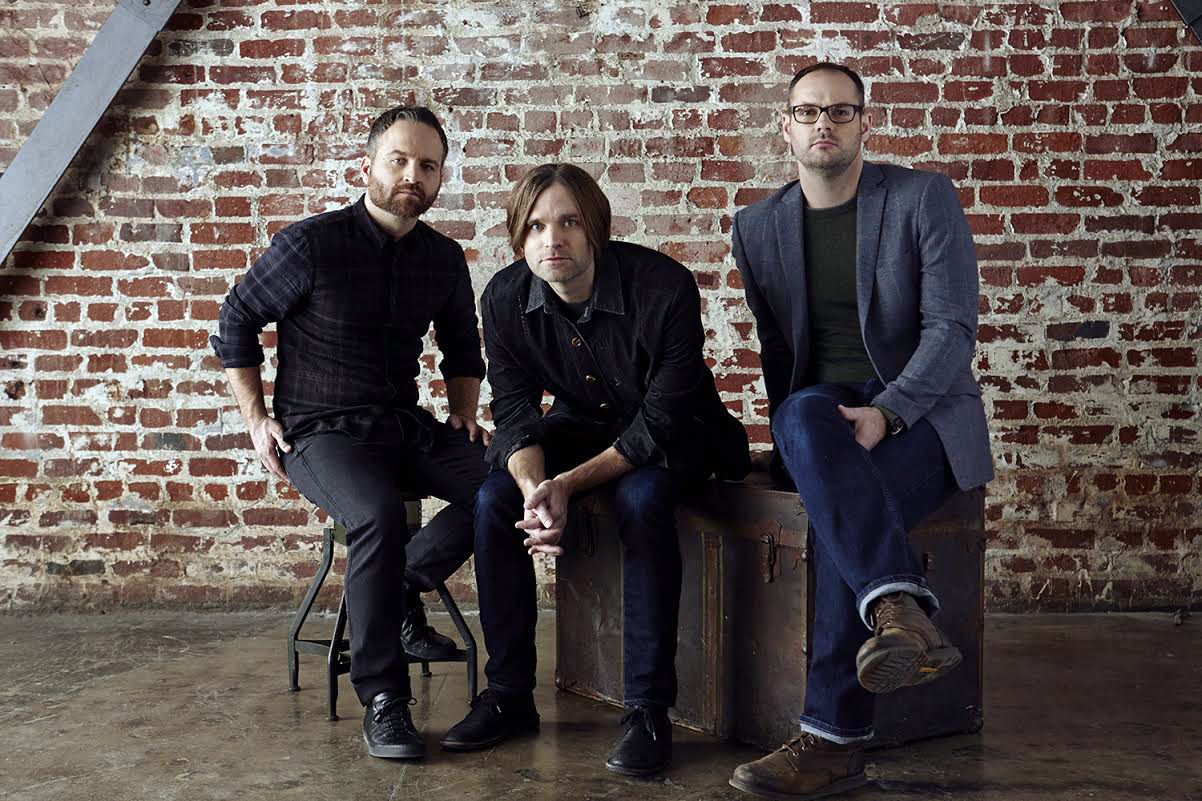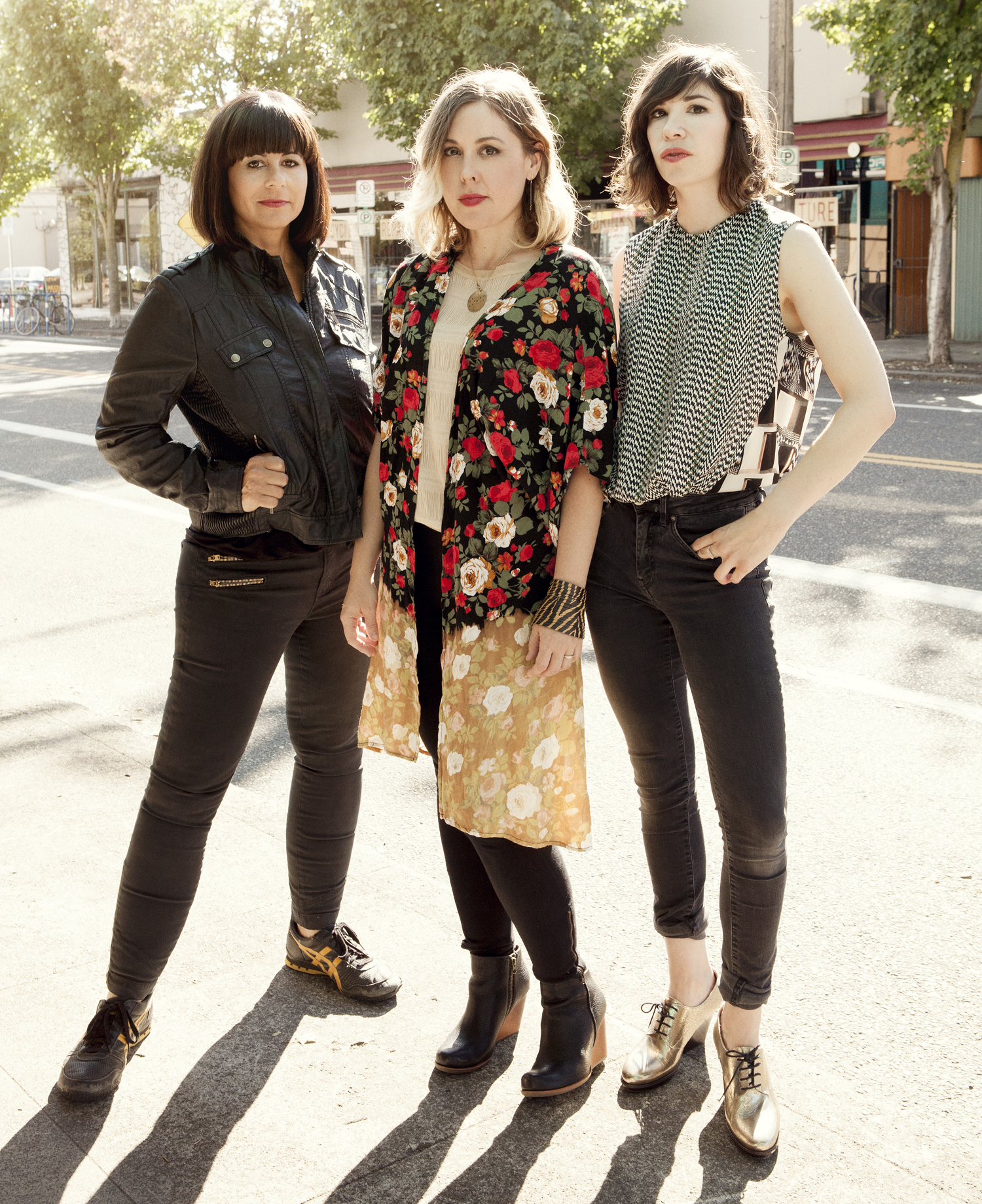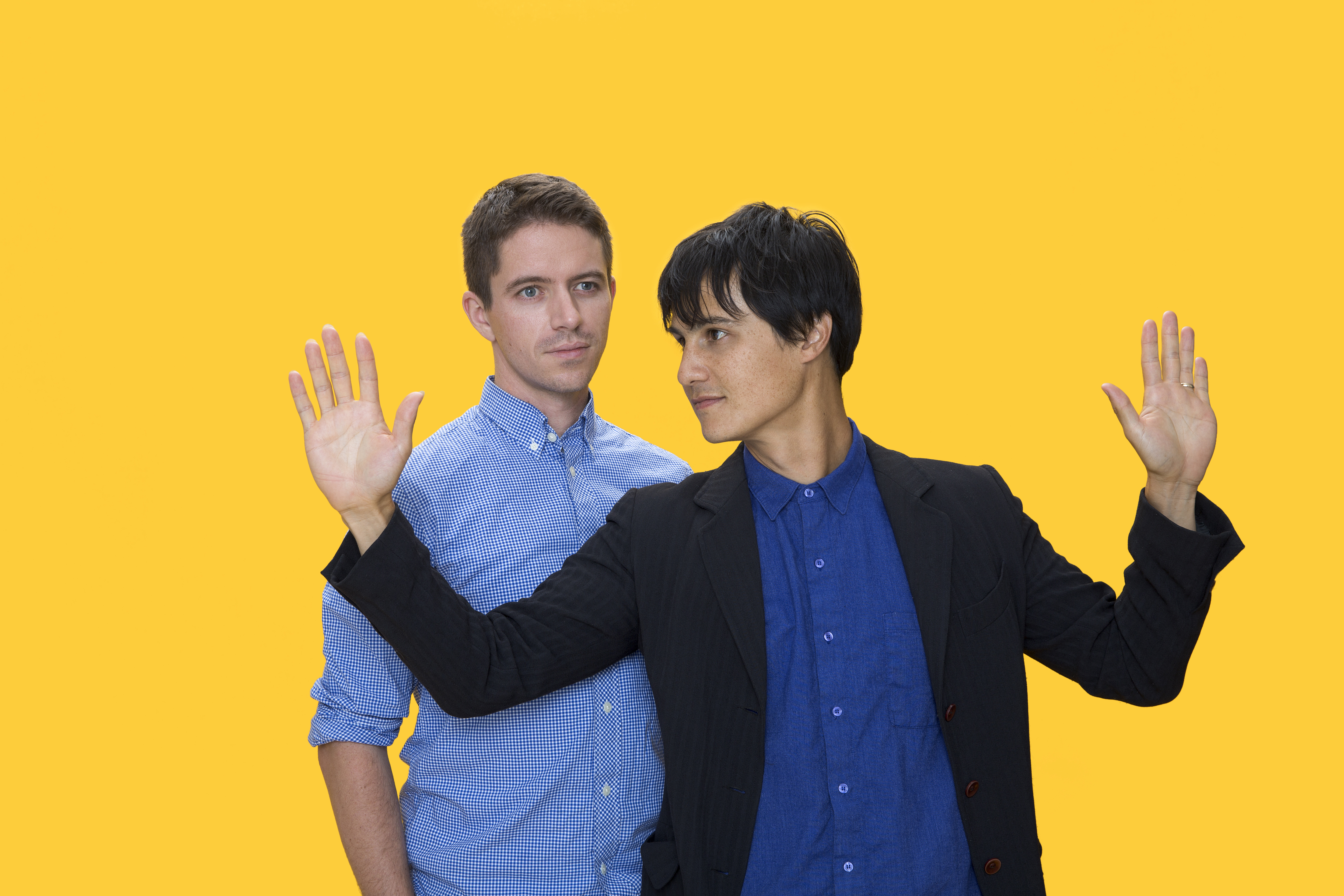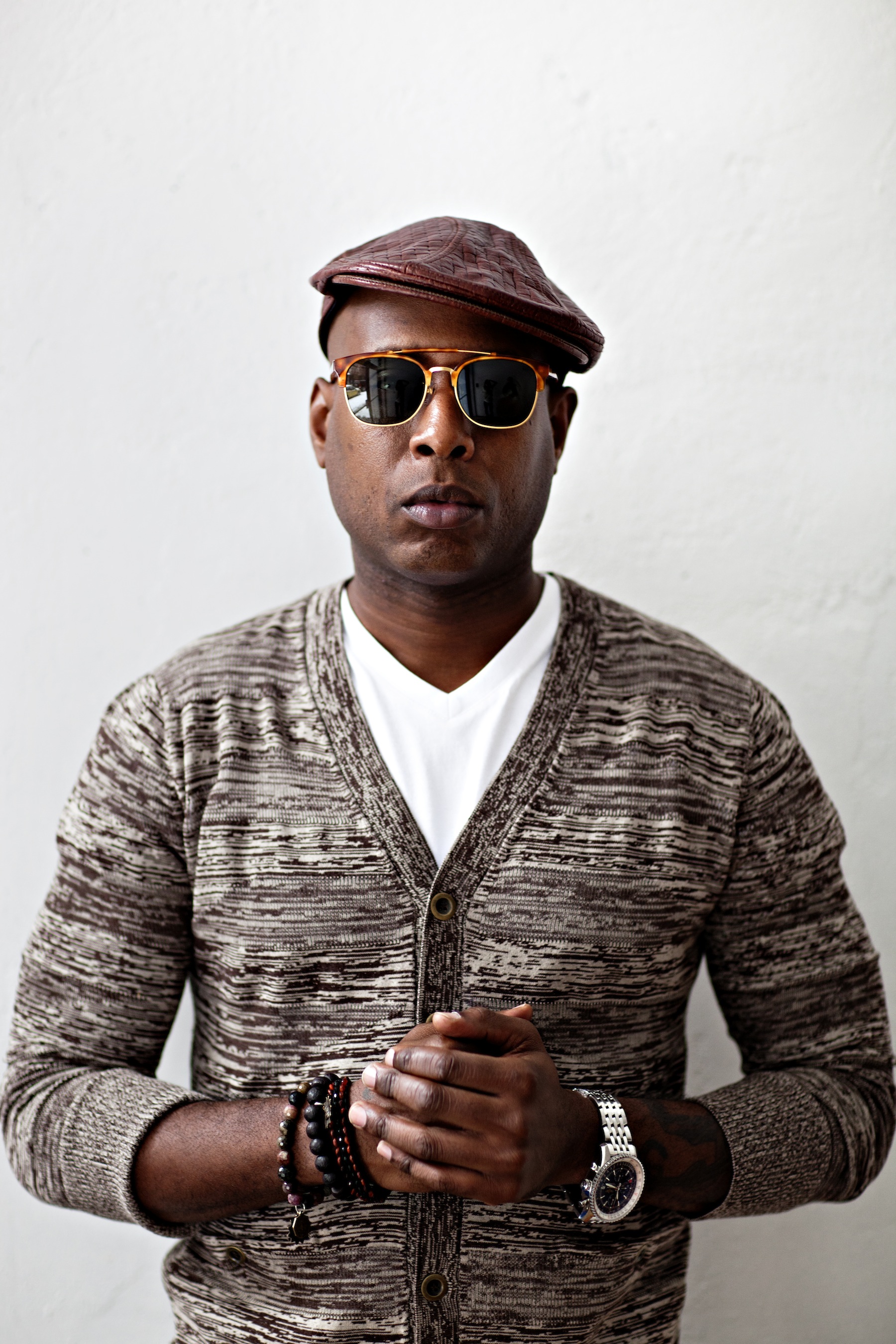Ed. note: When Death Cab for Cutie announced
Friday it will play an intimate home show tonight at the Croc, it promptly sold out in less than one minute. For those of you who didn’t score tickets, we’ve got the latest from band frontman and resident heartthrob, Ben Gibbard. Enjoy!
If Seattle had its own Music Hall of Fame, the bronzed heads of Death Cab for Cutie would rest near the top of the shrine. Few of Seattle’s major artists have enjoyed the longevity and continued success of this city’s favorite indie-rock band. Since DCFC formed in 1997, it’s released seven studio albums, been nominated for numerous Grammys, debuted at #1 atop Billboard’s Top 200, and toured the world several times. In March, the band will release its eighth album, Kintsugi—its first without founding guitarist, keyboardist, and producer Chris Walla. We caught up with front man Ben Gibbard to talk about his songwriting inspirations, the new album and what it was like recording without Walla, and his advice for young Seattle bands.
SW:
After achieving so much as an artist, how do you keep yourself inspired as a songwriter?Gibbard: Not to sound cheesy, but life is pretty inspiring. As a songwriter I’m constantly trying to document my life and the lives around me, and try to either pose questions or provide answers to problems in songs. Sometimes it’s just a matter of documenting a particular observation about a moment in time. I go through periods where I do a lot of writing and other periods where I do less. Being a songwriter, or being an artist of any medium, it is within you. It doesn’t really go away. At times you almost wish it would go away. (Laughs.) It’s built into who I am.
Talk about that—wishing it would go away. Do you feel as though sometimes songwriting takes you to deeper, darker places that make you reflect on things that maybe you don’t really want to?I would never release a song where I felt uncomfortable with the subject, or I was fearful of people prying too much, or being fearful of ridicule for earnestness. There are things that are off limits—just as there is for everyone. But I feel like if I ever start pushing into that territory, I’ll back off, or I’ll write something for my own adaptation and not release it.
As a band, you guys seem pretty open to expressing your feelings.
Kintsugi
marks the first album since the departure of Chris Walla. What was it like making an album without him behind the console?It was unusual at first to not have him producing the band. But I have to say the record wouldn’t be the record it is. It would not have been the creatively rejuvenating force that it was for us if we had done things the ways we’d always done them with having Chris produce the record. And I don’t mean that as a slight to Chris and to his talents, because he obviously has innumerable music talents. But I think at this point in the band, 17 years in, we needed to shake things up. I really enjoyed working with [producer] Rich Costey. It think it really provided a shot in the arm that we really needed.
The name
Kintsugi
refers to the Japanese pottery technique of repairing broken ceramics with precious metals and highlighting the cracks rather than hiding them. How does that concept shape the new album?We didn’t go into the album with that as the title from the very beginning. We usually tend to finish the records and then try and figure out the name. It think it’s a strange word in English, but I think it’s really evocative. As a songwriter, I’ve always tried to be very open and sometimes kind of almost too earnest in how I document, at times, my life, and at times the life of others, and how those intersect. Being a songwriter and going through the ups and downs in life, you can choose. When life knocks you down you feel kind of broken, and you can either lay in pieces on the floor or you can put yourself back together. You can use songwriting as a way to reconnect all of your broken parts and highlight them.
That’s one of the things I’ve always respected about you and your band: You’ve always been honest and authentic. I remember the first time I saw you play back in 1999 at the Crocodile. It was refreshing to see a band let its guard down and allow its personalities to come through. Now that you are playing arenas, how have you managed to retain that authenticity with your fans?I think over the years as the band has grown, there have been times where there has been a little bit of a struggle. Sometimes when I carry myself through what I would consider normal life—my home life, being a Seattleite, going to shows and going out to dinner with people, going running and stuff—you run into people and they know who you are from the band. I always try to defuse any kind of pedestal that someone might put me on because I’m in a band that has been successful. We all have made it part of our lifestyle that being in this band does not make us better than anybody else. It doesn’t make our lives any more important. It doesn’t allow us to act in an unbecoming, uncivilized way just because we happen to be in a rock band. There have been times when I’m sure I’ve slipped up in that. [Laughs.] But I feel like for the most part we have been able to maintain a level of personal integrity that does not allow the success of the band to dictate or allow us to get away with things that any normal person wouldn’t be able to get away with. A lot of that comes down to common decency, and not feeling like we are entitled to any special privileges just because we are in a band that is fairly successful.
Sometimes devoted fans have a hard time sharing their favorite underground band with the world when it gains a larger audience. As Death Cab has grown over the years, have you felt a backlash from some of your original fans? If so, how have you dealt with that?I think that’s part of being a fan of anything. I’ve been as guilty of it as anyone else. When you love a band that’s small and growing, and you’re one of seemingly only a handful of people who know that band, it can define one’s individuality. People use the things they like to define their individuality. And when all of a sudden a lot more people like the things you like, there are people who almost take that personally. We’ve all been guilty of it at times. We can’t make We Have the Facts and We’re Voting Yes again, the same way the fan who was 20 at the time they first heard it can’t be 20 years old again. You kind of have to throw that out.
I can’t live my life as a creative person trying to please everybody. Let me backtrack a little bit. I think this band has had a series of different entry points when people have gotten into the band. There were people who were fans of the band with the first two or three records, and there were people who picked up with the band around Transatlanticism, and there was such a huge jump in sales for us. And then being on a major label and making a record like Plans brought a whole bunch of new people into the mix. It seems to me fans tend to want us to make the record that sounds like the first record they heard by us. And I totally understand where that comes from. Some of my favorite bands, I’ve looked at them and thought, “Oh, I wish they could make a record like blank again.” But that’s not how creative minds work and that’s not how bands work. I’d like to think that with every record we’ve made, there have been highs and lows within the record. We are constantly trying to move forward and do things that are interesting to us. The most difficult thing for any band to do is to remain true to what they are good at and what they are known for, but also try and branch out and experiment with some new sounds and ideas. Sometimes that works really well and sometimes it doesn’t. It’s a constant forge. It’s something we are always trying to work on—sometimes more successfully than other times.
As we grow older our emotional needs change. How has that changed your songwriting?I’d like to hope that at my most successful moments as a songwriter, I’m capturing where I’m at in my life in a very honest and open way. That’s kind of the goal. There are songs that we still play, from some of the older records, that as we’re playing them, I’m thinking, “I wrote this when I was 20 and I can hear the 20-year-old version of myself in there.” But I want to continue playing those songs, not just because people like those songs, but also because I don’t want to edit the younger part of myself out of what the band is doing currently, because that’s a huge part of our story. And as far as my own personal listening goes, there was not a better record that came out last year than the Sun Kil Moon record Benji. I am very near, or in, middle age. So hearing this beautiful record written about middle age from the perspective of a 46-year-old guy was more relatable and interesting to me than most records that I heard that were written by people who were in their early 20s, because it’s where I am at in my life.
I would like to hope that if people are still listening to [DCFC] who were listening to the band 15 years ago, it’s because they are growing with the band and the subject matter is reflected in their lives as well.
If you could give advice to a young Seattle band, what would that advice be?[Pause.] Oh, man. [Laughs] I feel like the culture of being a band now is so different. There are so many things that are different now than when we started. There’s nothing that makes me feel older than saying that. [Laughs.] Things have changed very quickly. But I think the most important thing for any young band to do is to meet other bands and make friends and start a scene. That scene can be a scene within a scene. Obviously there is a Seattle music scene. But there are other small cliques happening within Seattle with like-minded musicians who play shows together and tour together. I love that shit. That is the most important thing, especially for a band that is an independently minded band. To me that was always the best part of being a band: the community. The people. In the early days, when you are playing with your friends, and you think they are all brilliant, and you’re playing shows with them every weekend, and you’re going to see your friends, and you’re getting psyched on what they are doing. I think forming and being a part of a community, even if it’s just those three or four bands that always play shows together—I think that’s the best part of being in a band. Feeling like you are part of something bigger than yourself, something bigger than the band that you are in.
Looking back on the early days of our band, we wouldn’t have gotten nearly as far as we did if we didn’t embrace that idea of being a part of a larger community, leaning on friends and other bands when we needed a place to stay or we needed a show in some weird town. That’s one part of being in a band I love the most.
music@seattleweekly.com
DEATH CAB FOR CUTIE With Say Hi. The Crocodile, 2200 Second Ave., 441-4618, thecrocodile.com. SOLD OUT. 21 and over. 8 p.m. Tues., Jan. 20.








